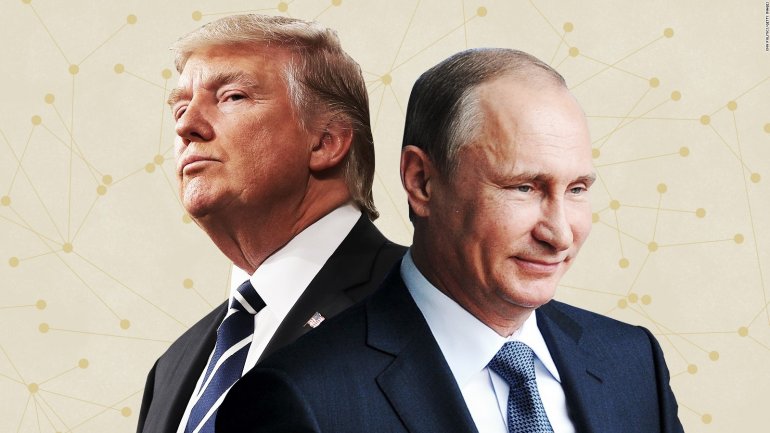Donald Trump signs Russian sanctions bill as Kremlin takes over US property in Moscow
 foto: cnn.com
foto: cnn.com
Donald Trump has signed a bill to impose further sanctions on Russia over interference in the 2016 US presidential election, annexation of the Crimean peninsula, and other perceived violations of international norms.
The bill had been approved in the US Congress by overwhelming margins, bringing in both Republican and Democratic votes at a time in Washington politics where polarisation is the rule, and bipartisanship is a rare exception to that order.
In signing the bill, Mr Trump signalled that he wasn't completely happy with the outcome - and reasserted his common claim that he is the ultimate deal maker.
"I built a truly great company worth many billions of dollars. That is a big part of the reason I was elected," the President said in a statement on the sanctions bill that criticised Congress for encroaching on executive authority. "As President, I can make far better deals with foreign countries than Congress."
Prior to the signing, it was unclear if Mr Trump would actually sign the legislation. US Secretary of State Rex Tillerson had previously told reporters that he and the President didn't believe the new sanctions would "be helpful to our efforts" on Russian diplomacy.
The bill also limits the President's ability to ease sanctions against Moscow. The legislation is one of the first major pieces of law that has landed on Mr Trump's desk since he got into office just over six months ago.
Even before Mr Trump signed the legislation, the threat of the bill prompted Russian President Vladimir Putin to retaliate. Mr Putin ejected 755 US diplomats from his country in response to the sanctions threat earlier this week.
The bill was originally approved in the Senate 98-2, but then languished in the House of Representatives as representatives dredged through a series of procedural fights. That was put to an end when sanctions on North Korea were added to the legislation. The House then voted to approve those measures, and effectively forced the Senate to take a harder line on North Korea in doing so.
The House and Senate also agreed to a deal to change the bill in light of urgings from several US industries and European allies. The European Union had expressed concern that new Russian sanctions would injure their energy security, and would damage their private industries working to establish a pipeline to feed natural gas from Russia into Germany. European Union officials vowed to act swiftly should those interests be threatened by new US sanctions enacted without consult to their positions. Congress had refused to consider removing language in the bill that would take away their ability to veto any future attempts by the President to remove sanctions placed on Russia, even as the White House lobbied for those restrictions to be pulled back.
The veto language indicates that Congress can take steps to dial back eased sanctions if Mr Trump's administration too an "egregious" step to try and remove sanctions, according to Senate Foreign Relations Chairman Bob Corker. Mr Corker was initially unsure if the sanctions bill was appropriate, but later was a strong supporter of the measure.
"I've walked the President through the process of how congressional review works," Mr Corker told CNN. "The administration -- knowing that unless it's way out of bounds -- likely they have the flexibility to do what they need to do."
Some experts have said that, although Mr Trump signed the bill with a statement of protest, the massive support for the bill in Congress left him with little hope.
"Although thte President's statement is a stunning rebuke of Congress, the fact remains that both the House and Senate were nearly unanimous in voting for this toughened sanctions regime," Lawrence Ward, a partner at the international law foirm Dorsey & Whitney, said in a statement provided to The Independent. "Those near unanimous votes made it impossible for President Trump to take any action other than signing it."